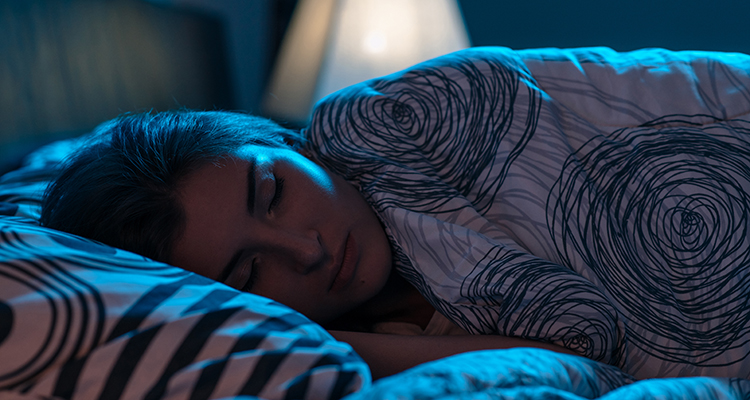Is Insomnia More Common in Women?
Although insomnia can affect anyone; it appears to affect women the most. Sleep disorders, like insomnia, and general “sleeplessness” can lead to daytime fatigue and grogginess, crankiness, achiness, mood swings, a lack of motivation, low productivity, depression, anxiety, etc.
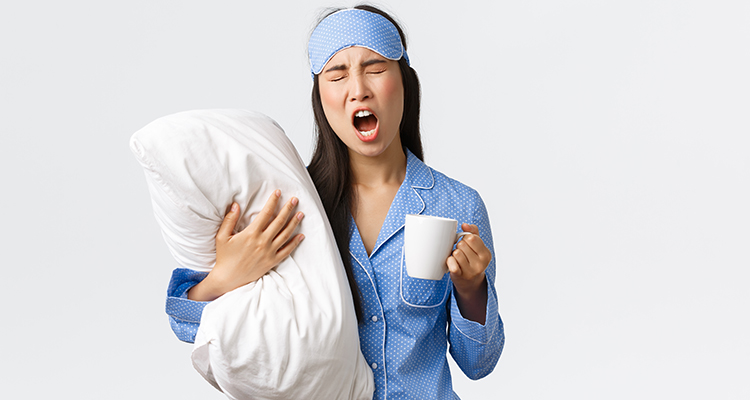
It is currently unknown why women suffer from insomnia and sleep issues more than their male counterparts, however, a variety of factors, such as hormones and stress appear to play a part in poor sleep quality. The good news is there is help available for women, who are unable to get quality sleep. Learning the potential triggers can help women address their sleep issues with their doctors.
Once you can pinpoint the cause of your “sleeplessness,” you can finally get the rest you need to be your best self.
So, is insomnia more common in women? Absolutely.
Content
Do Women Really Experience Insomnia More Than Men?
Yes, according to statistics and studies…
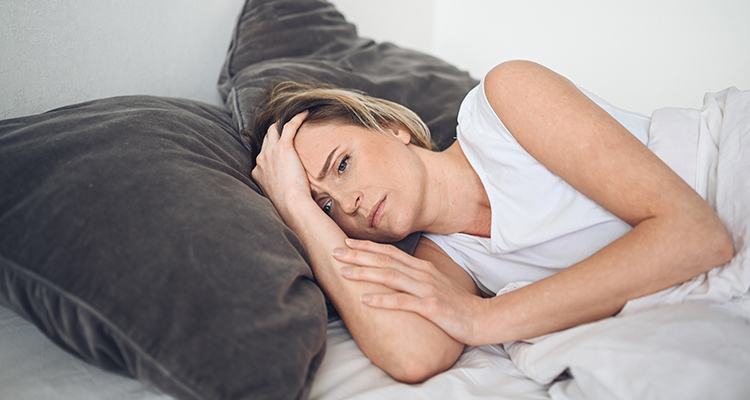
In fact, multiple studies have found that women do indeed experience more bouts of insomnia than men. And, some studies suggest that women are 40% more likely to experience a sleep disorder, like insomnia, at some point in their lives.
Researchers have also found that women typically experience sleep issues or sleep disorders, like insomnia, in a different way than men. For instance, middle-aged and elderly women are more likely to experience a wide range of insomnia aftereffects, such as daytime drowsiness, mental confusion, mood swings, irritability, and aches and pains – as compared to their male counterparts. Men, on the other hand, typically only experience one effect of “sleeplessness” or insomnia.
Ultimately, however, scientific evidence suggests that women have a higher risk of experiencing sleep issues. In fact, the National Sleep Foundation estimates that approximately 67% of women report that they do not sleep well at night. While some of these women report experiencing “sleeplessness” a few times a month, others (over 46%) admit having sleep issues nearly every night.
Why Are Sleep Issues More Common in Women?
The reason why women struggle with sleep issues more than men is currently unclear. More specifically, there is some disagreement when it comes to the exact “cause(s)” of insomnia in women. Some researchers suggest that women experience more sleep issues than men because of a wide variety of reasons, such as hormones (estrogen and progesterone), circadian rhythm differences, and/or genetics.
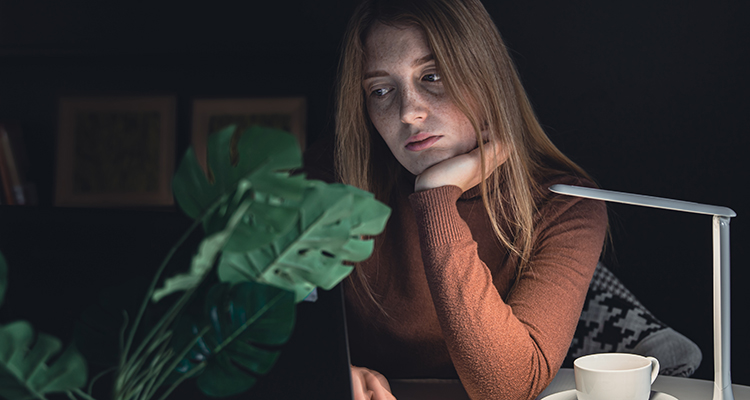
Social/cultural factors also appear to impact sleep quality in women. Moreover, studies suggest that chronic health conditions, like fibromyalgia, depression, bipolar disorder, anxiety, restless leg syndrome (RLS), sleep apnea, asthma, lupus, etc., may trigger sleep disorders in some women. However, the jury is still out on these theories. Still, the general consensus (among doctors, sleep specialists, and therapists) is that all of the factors listed above can contribute to insomnia in women.
What is Causing My Insomnia?
It depends…
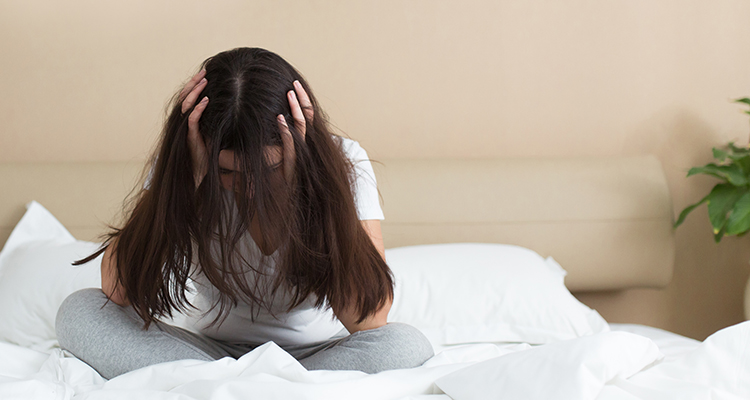
Currently, it is hard to pinpoint the exact “cause(s)” of insomnia in many women. Sleep is a complicated function and process. And, sleep quality is heavily dependent on a wide range of factors, such as your health, body chemistry, age, gender, etc.
Sometimes, sleep issues arise due to mental health conditions, poor sleep hygiene or habits, aging, hormones, stress, genetics, circadian rhythm disruptions, and/or other health problems that make it hard to relax and fall asleep. However, it is important to understand that the “cause(s) of sleep problems in men and women may not be the same. For instance, hormones can play a big part in insomnia in women, while that usually is not the case for men. So, there is a chance you may not be able to determine exactly what is causing your insomnia.
Could My Hormones Be Contributing to My “Sleeplessness?”
Absolutely!
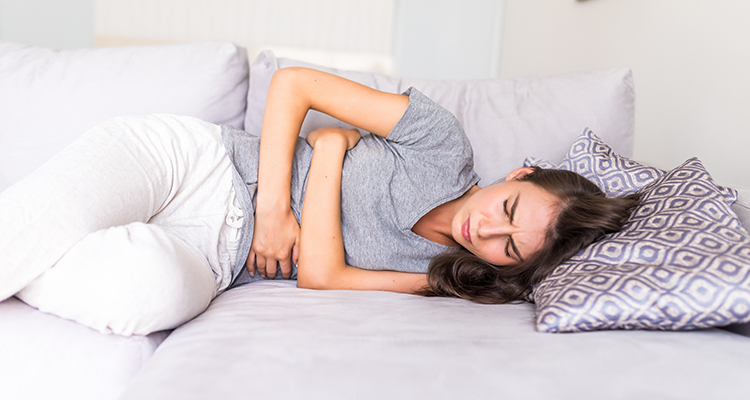
Understand that most hormones are also neurotransmitters (chemical messengers located within your brain). This hormone/neurotransmitter combination is responsible for ensuring your body functions (i.e., organs, tissues, cells, veins, arteries, etc.) at an optimal level. Thus, your hormones can have a direct or indirect effect on your sleep quality.
Thus, some researchers have concluded that a women’s hormones are responsible for insomnia, especially during PMS, menstruation, pregnancy, perimenopause, and menopause. Keep in mind, however, that a woman’s hormones fluctuate depending on where she is at in her life cycle. They even fluctuate during a woman’s monthly menstrual cycles.
Listed below are the effects of hormones on a woman’s sleep quality during different points in her life cycle:
Menstruation
Your monthly menstrual cycles begin once your hormone levels shift. More specifically, fluctuating (increasing and declining) estrogen and progesterone levels can cause a variety of symptoms (i.e., body aches, migraines or menstrual headaches, cramps, heavy blood flow, mood swings, anxiety, depression, etc.) that can keep you awake at night.
Some women can even experience PMS symptoms, like insomnia, achiness, headaches/migraines, and restlessness, before they start their period. Your hormone levels drop significantly a week or two before the beginning of your monthly menstrual cycle – this is PMS. Researchers have also found that women, who suffer from premenstrual syndrome (PMS), are more likely to experience insomnia or sleep issues.
In fact, approximately 90% of women struggle with physical and behavioral effects, along with changes in mood and “sleeplessness,” before and/or during their monthly menstrual cycles. Changing hormone levels can disrupt your sleep and cause you to awaken several times throughout the night. It can also trigger restlessness and/or nightmares or night terrors.
Note: Women may also experience insomnia due to premenstrual dysphoric disorder (PMDD). PMDD is a more extreme form of PMS. This condition can cause more serious sleep issues. In fact, approximately 70% of women with PMDD report experiencing severe mood swings, depression, anxiety, and/or moderate-to-severe insomnia shortly before their monthly menstrual cycles.
Pregnancy
During pregnancy and even after giving birth, women experience hormone fluctuations that can affect their abilities to fall and stay asleep at night. Once a woman becomes pregnant her normal monthly menstrual cycles change – due to hormonal shifts. This change typically occurs within the first trimester (6-8 weeks) of pregnancy.
Later in the pregnancy, morning sickness, aches and pains, fluid retention, increased hunger and urination, hormonal headaches/migraines, anxiety, and/or depression can prevent a woman’s body from relaxing enough to fall asleep. Insomnia tends to worsen during the third trimester, making falling and staying asleep seem like an impossible feat.
And, approximately 24-hours after the delivery of a baby, some women experience another shift in their hormone levels (a return to pre-pregnancy estrogen and progesterone levels), triggering depression and/or another bout of sleep issues or insomnia. These “changes” can cause a woman to become extremely emotional after giving birth, which can make it hard to get sound sleep.
Perimenopause and Menopause
When women enter perimenopause, their bodies begin transitioning towards menopause or the permanent end to their monthly menstrual cycles. Perimenopause typically begins in a women’s 40s, however, it can occur earlier or later than that. When you enter perimenopause largely depends on genetics or when your mother entered it. Most women stay in this stage for at least 4 years; however, some may stay in it for up to 10 years.
Perimenopause symptoms can include night sweats, hot flashes, sore or achy breasts, fluid retention, headaches/migraines, mood swings, depression, anxiety, and weight gain – all the ingredients needed to trigger insomnia or sleep issues. Understand that when a woman enters perimenopause, her periods become irregular or abnormal. She may also skip periods or have multiple periods in a month.
However, once she stops having periods for at least 12 months, she is considered to be in menopause. During menopause a woman no longer has periods. She is also no longer able to naturally conceive. Menopause symptoms can also cause sleepless nights. Studies suggest that one of the benchmark signs of perimenopause and menopause is insomnia. In fact, between 38% and 60% of women develop a sleep disorder during these times in their life cycles.
And, according to a 2015 study, 85% of perimenopausal and menopausal women experience hot flashes and night sweats that keep them up at night and/or prevent them from falling back asleep once awakened. This is caused by a decline in hormones. Changes in hormone levels during perimenopause and menopause, along with natural aging, can disrupt or alter a woman’s circadian rhythms, leading to “sleeplessness” or insomnia.
How Can I Get Some Quality ZZZ?
Truth be told, sleep is vital to everyone’s health, but it is especially important for women’s health. Why? Because, women need sleep to be able to carry a baby to term, perform work and home tasks, parent children, etc. Men also need sleep, but women appear to have more sleep challenges than men. The good news is that women can get some quality zzz. In other words, women can get a good night’s sleep – with the right tools.
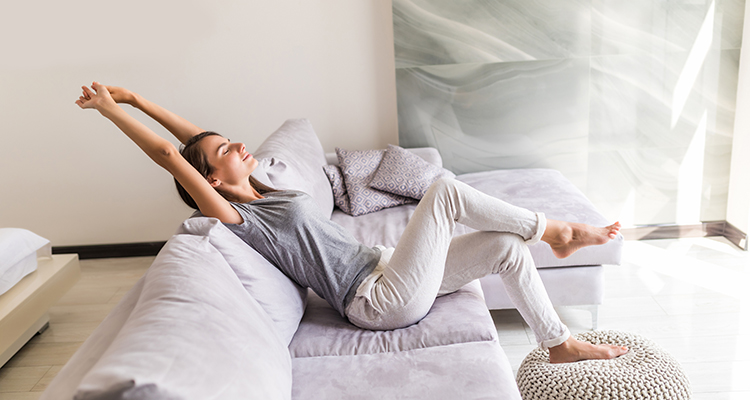
Because a variety of factors can affect sleep quality, women should share their sleep concerns with their doctors, especially if they are only getting a few hours of sleep each night and/or are frequently waking up at night. Also, consult your doctor if your insomnia has lasted at least 4 weeks and is interfering with your life and health and well-being (i.e., causing daytime sleepiness, mood swings, a short temper, poor productivity, mental confusion, muscle aches, stomachaches, and/or headaches, etc.).
If your doctor feels that you have a sleep disorder, like insomnia, he or she may refer you to a sleep specialist and/or sleep clinic, where you will be closely monitored to identify your sleep patterns and habits. Once the sleep specialist determines what may be triggering your sleep issues, he or she will develop a customized treatment plan to address the factors contributing to your insomnia.
Your treatment plan will not only address your sleep issues, but also any other co-existing health conditions and ailments, such as lupus, RLS, clinical depression, generalized anxiety disorder, postpartum depression, fibromyalgia, influenza (flu), viruses, etc.
Researchers suggest that women can benefit from better sleep habits, such as:
- Consistent sleep schedules and bedtime routines (i.e., going to bed and waking up at the same the each day – even on the weekends and during the holidays)
- Reducing or foregoing alcohol and caffeine at least 6 hours before bed
- Avoiding “screen time” (i.e., smartphones, laptops, desktop computers, and tablets) at least 60-minutes before going to bed – blue light (from a screen) can stimulate your mind and disrupt your circadian rhythms or sleep-wake cycles
- Including relaxation techniques, such as progressive muscle relaxation, deep breathing exercises, guided meditation, and/or online sleep programs, like Somnus Therapy, into your evening routine
- Ensuring that you have a comfortable sleep environment by adding blackout curtains to your windows, putting your thermostat on a comfortable temperature (preferably 60-70 degrees), purchasing quality bedding and a comfy mattress, reducing the amount of light in your room, and turning on a sound machine to block extraneous noises
- Participating in CBT-I or cognitive-behavioral therapy – for insomnia weekly sessions (CBT-I is usually the first line of defense when treating insomnia in women)
- Regularly attending insomnia support groups
- Taking a melatonin supplement approximately 30-minutes before bed
Note: If you have tried the suggestions listed above, but have not experienced a noticeable improvement in your sleep quality within 12 weeks, you will most likely need to see a sleep specialist to resolve your sleep issue. Keep in mind that it is possible to suffer from insomnia and another sleep disorder, so seeking help for your “sleeplessness” is imperative for your health and well-being.
Is CBT-I Really Effective in Improving Sleep Quality?
Yes!

Cognitive-behavioral therapy for insomnia (CBT-I) explores how your thoughts, feelings, and behaviors are triggering your insomnia. This “form” of CBT teaches you positive ways to relax and develop healthy sleep habits. The great thing about CBT-I is that is usually offered online (app or website) and in-person, so you have options. In fact, researchers have found that engaging in online CBT-I is just as effective in improving sleep quality as a prescription like Ambien and Lunesta, and OTC sleep aids like Benadryl and Unisom.
Note: Some women may need a therapy/medication combination to get some much-needed zzz.
What Else Can Help Me Get Better Sleep at Night?
Well, Somnus Therapy can be an effective tool for improving your sleep quality. What is Somnus Therapy? It is an insomnia treatment program that uses CBT-I, life coaches, informative articles, guided meditation, and audio recordings to help you fall and stay asleep at night. The best thing about this sleep program is its accessibility and affordability. Another perk? The support. In other words, it offers you valuable tools and resources so you can put your sleepless nights behind you – once and for all!
